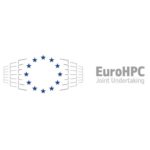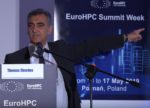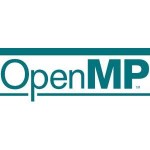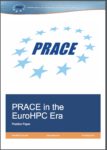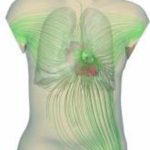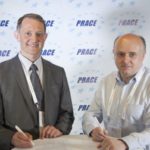The European Union has selected eight supercomputing centers to host pre-exascale supercomputers. “In total, 19 of the 28 countries participating in the Joint Undertaking will be part of the consortia operating the centers. Together with EU funds, it represents a total budget of € 840 million. The exact funding arrangements for the new supercomputers will be reflected in hosting agreements that will be signed soon.
EuroHPC – The EU Strategy in High Performance Computing
Thomas Skordas from the European Commission gave this talk at EuroHPC Summit Week in Poland. “The EuroHPC Summit Week brings together relevant European supercomputing stakeholders and decision makers, allowing them to share on the one hand their needs and future expectations and on the other hand the latest technological developments, to define synergies and participate in shaping the future of European supercomputing.”
Dr Debora Sijacki wins 2019 PRACE Ada Lovelace Award for HPC
Today the European PRACE initiative announced that Dr Debora Sijacki from the University of Cambridge will receive the 2019 PRACE Ada Lovelace Award for HPC for her outstanding contributions to and impact on high performance computing in Europe. As a computational cosmologist she has achieved numerous high-impact results in astrophysics based on numerical simulations on state-of-the-art supercomputers.
LRZ in Germany joins the OpenMP effort
The Leibniz Supercomputing Centre (LRZ) in Germany has joined the OpenMP Architecture Review Board (ARB), a group of leading hardware and software vendors and research organizations creating the standard for the most popular shared-memory parallel programming model in use today. “With the rise of core counts and the expected future deployment of accelerated systems, optimizing node-level performance is getting more and more important. As a member of the OpenMP ARB, we want to contribute to the future of OpenMP to meet the challenges of new architectures“, says Prof. Dieter Kranzlmüller, Chairman of the Board of Directors of LRZ.
ARCHER2 Supercomputer coming to University of Edinburgh
Today the University of Edinburgh announced plans to deploy ARCHER2, a £79 million national supercomputer that will be five times faster than the UK’s current capabilities. “ARCHER2 will provide UK science with an unparalleled capability to model and simulate the world around us,” said Professor Mark Parsons, EPCC Director. “This is a real vote of confidence in the University’s supercomputing centre, EPCC, which is internationally recognised for its excellence in computational science.”
New Report: PRACE in the EuroHPC Era
The Partnership for Advanced Computing in Europe has published a new report: PRACE in the EuroHPC Era. PRACE is an international non-profit association with its seat in Brussels. “The EuroHPC Joint Undertaking will advance the European supercomputer landscape by completing the infrastructure pyramid at the top level with European leadership-class supercomputers. In a context of a strong international competition with USA, China and Japan, this development is highly expected by all stakeholders of HPC in Europe. For the European HPC users from science and industry, i.e. industrials and SMEs, the seamless integration of these new top-level systems and services into the existing European HPC-ecosystem is an issue of paramount importance.”
PRACE Joins Women in HPC Affiliates Program
The European PRACE initiative has just become one of the first WHPC affiliates as part of Women in HPC’s ever-growing pilot expansion program. “We anticipate that the new WHPC affiliates will provide amplification of the WHPC mission to diversify the International HPC community, encourage the gathering of statistics of where women are in the community, what roles they fill and also helping us to identify why women leave and what we can do about it.”
Supercomputing Cardiac Arrhythmias
A team of researchers led by Mark Potse from Inria Bordeaux Sud-Ouest research centre are using high performance computing to study heart arrhythmias. It is hoped that this research will lead to better treatment and diagnosis of this condition. “HPC offers enormous potential to advance healthcare through the advances in new therapies and treatments. From understanding the nature of diseases to discovering new drugs and even paradigm shifts in the way that healthcare is delivered such as the development of precision medicine.”
Pawsey teams with PRACE to promote Supercomputing
Australia’s Pawsey Supercomputing Centre and PRACE have signed a Memorandum of Understanding (MOU) to promote the use of supercomputers to the progress of scientific and technological outcomes, and to stimulate the industry sector both in Australia and Europe. “PRACE and Pawsey share the complexity and international nature of the science areas that each organization supports, the need to provide services to researchers who are spread across different time zones and the requirement of on-demand access to compute power for a scientific instrument.”
MareNostrum provides 470 million core hours to European scientists
The PRACE initiative continues to sponsor ground-breaking research in Europe. “In the 16th PRACE Call for Project Access, Spain has allocated 470 million core hours on MareNostrum to 17 projects led by scientists from different European countries. With this allocation, this is the second time in a row that this unique supercomputer – which is installed in a chapel – has been the largest contributor in number of core hours in the last two PRACE Call for Proposals.”

